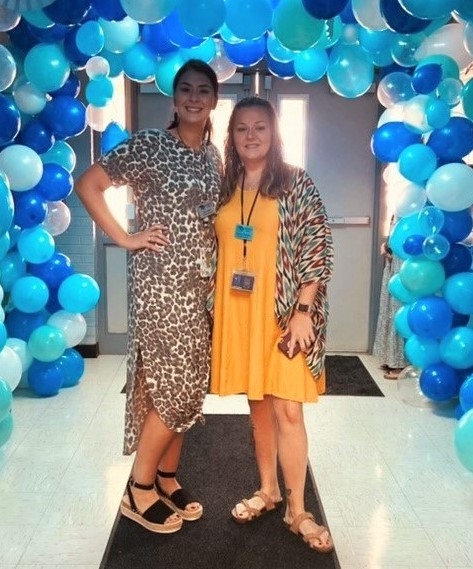
The U of A now offers a path for paraprofessionals to earn a degree in education while continuing to work in their hometowns.
"This initiative is an example of a grow-your-own teacher workforce program that allows for individuals who are committed to being part of the success of their hometown, know the culture and dynamics of their local school community and have a passion for teaching and helping young people be successful in becoming a teacher," said Ed Bengtson, head of the U of A Department of Curriculum and Instruction. "We see this project as contributing to growing and maintaining a teacher workforce in areas of Arkansas that have not had the opportunity to do so in the past."
The new "paraprofessional transition" pathway started this fall in the College of Education and Health Professions educational studies program. It serves as a starting point for paraprofessionals already working in school systems around the state who want to obtain a bachelor's degree. The degree program is entirely online, so participants don't need to leave home to participate. After earning a bachelor's degree through the U of A, students are eligible to apply to an alternative licensure program to become fully licensed teachers.
Rhett Hutchins, program coordinator for the educational studies program, said, "Paraprofessionals are deeply integrated in our schools. We need routes to move them into full-time and fully licensed positions. The goal of the program is to make this move possible for any para-pro in an Arkansans school without taking them away from the students and communities they are serving."
Julie Clift, a paraprofessional in Fouke, Arkansas, was among the first to enroll. She and her husband have three sons, ages 13, 8 and 5, so the virtual aspect was appealing. "I didn't know of any other program like this that is offered online and centered around paras," she said.
Clift, who has an associate's degree in psychology, is passionate about helping kids who may be struggling at home. "When I decided to work as a para, I felt it was the best way for me to get close and make a child feel welcomed and wanted everywhere they go," she said. She works in an alternative learning environment class with elementary children of various ages.
"I enrolled in the U of A program to become more educated, so I can help these kids learn and have fun at the same time while in school," she said. "They don't always have stability, basic care and necessities at home. They need the stability of a smaller classroom, hands-on learning and more one-on-one time. I want to be able to give that to them while they are at school. I am super excited about this program, and I can't wait to see what tools it will give me to help these kids succeed."
Paraprofessionals are sometimes called teacher's aides or assistants. Many paraprofessionals, like Clift, provide support to help make classrooms more inclusive or to provide additional services. Paraprofessionals are required to have 60 hours of education. The U of A's online program will facilitate the additional 60 hours needed to attain a bachelor's degree. After completing the educational studies degree, students will have an opportunity to apply to an alternative teacher license program through one of several alternative license pathways approved by the state.
Topics
Contacts
Shannon G. Magsam, director of communications
College of Education and Health Professions
479-575-3138,